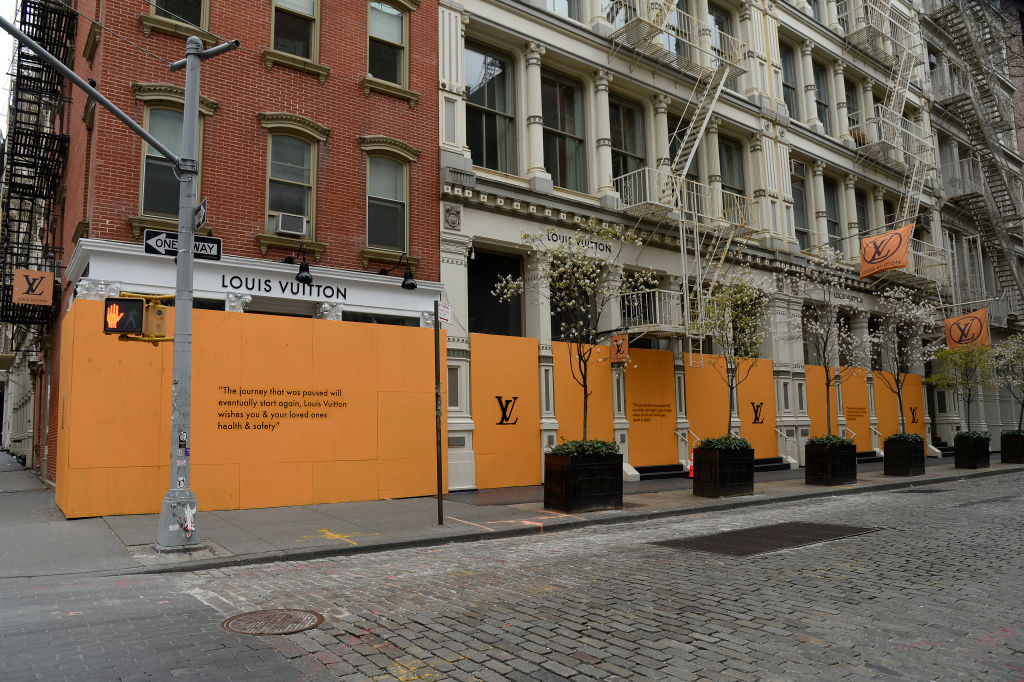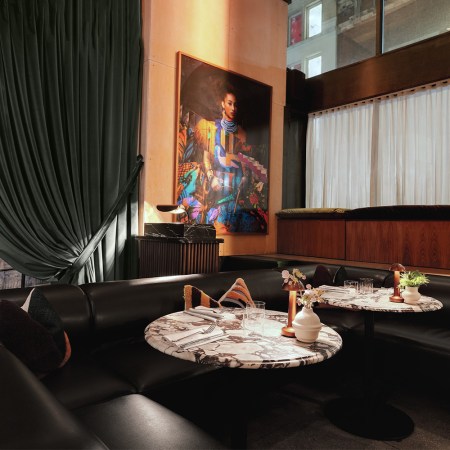Many owners and managers of businesses deemed “non-essential” during recent shutdowns, done to prevent COVID-19 from spreading, faced a series of unpleasant but necessary choices. One was more pragmatic than anything — namely, what do you do with a storefront that likely won’t be re-opened for weeks at best? Some retailers in the United States and abroad opted to board up their storefronts during the temporary closure. While there are certainly pragmatic reasons for this, it’s also hard to deny that a sea of boarded-up storefronts doesn’t really inspire optimism.
Writing at Gothamist, Ben Yakas wrote about a group of retailers in New York City who are facing a backlash for their decision to board up storefronts. The article quotes Jeffrey LeFrancois of the Meatpacking District Business Improvement District, as warning about the way these storefronts look. “While technically it’s not illegal to board up your storefront, it’s definitely an uncomfortable message,” said LeFrancois.
The article also quotes from a letter that Michael Racioppo, the District Manager of Community Board 6, sent to the city’s Department of Buildings on March 27. In it, he made the case that these storefronts have a negative psychological effect on many who see them:
Boarded-up storefronts, as many businesses struggle to survive, further dampens commercial activity. Small businesses such as restaurants and bars that have had to adapt to a take-out and delivery model shouldn’t be further burdened by a streetscape that inaccurately suggests a crime-ridden present and dystopian future.
As Racioppo notes in his letter, the NYPD’s statistics reflect a decrease in crime, rather than the opposite. It has led to some moments of unexpected creativity, though — Yakas notes that Racioppo has commissioned murals to be painted over the boards in the area of his jurisdiction.
Subscribe here for our free daily newsletter.
Thanks for reading InsideHook. Sign up for our daily newsletter and be in the know.


















